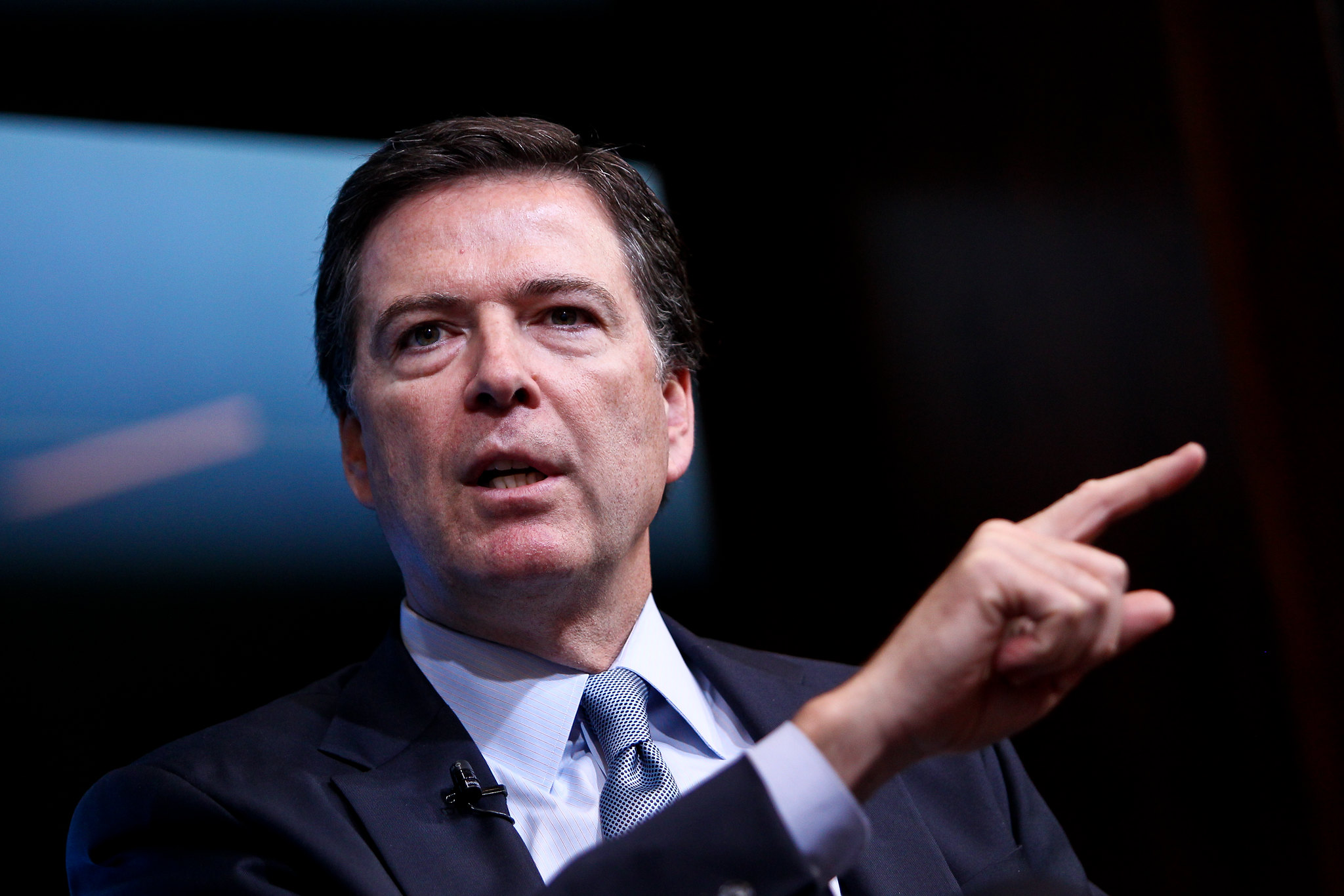The Situation: Brief Thoughts on the Indictment of James Comey
You can’t keep the facts out of a criminal case forever.

The Situation on Wednesday contemplated what an indictment against James Comey might look like.
Today, we got one, and we still don’t really know the answer to that question.
There are so-called speaking indictments and then there are indictments that don’t even try to tell a story, merely allege in bare terms that conduct took place on a specific day of a nature that violated an identified law.
The Comey indictment speaks less than any charge you are ever likely to see against a prominent person in a high-profile criminal matter.
One can only speculate as to the reason for that. But imagine that you just started a brand new job. Imagine you didn’t know what you’re doing, and your relevant experience was nonexistent. Imagine that all of your employees have counseled against the course you are taking. But imagine as well that you have no choice because the only reason you have the job is that you agreed to pursue this indictment. Imagine that your predecessor lost the job you now have because he would not do this particular piece of dirty work. Imagine you have been warned that the evidence just isn’t there to proceed with the case.
Under such circumstances, you might also choose not to show a lot of your work.
The indictment consists of two passages. The first reads in its entirety:
COUNT ONE
False statements within the jurisdiction of the legislative branch of the United States Government [18 U.S.C. § 1001(a)(2)]
1. On or about September 30, 2020, in the Eastern District of Virginia, the defendant, JAMES B. COMEY JR., did willfully and knowingly make a materially false, fictitious, and fraudulent statement in a matter within the jurisdiction of the legislative branch of the Government of the United States, by falsely stating to a U.S. Senator during a Senate Judiciary Committee hearing that he, JAMES B. COMEY JR., had not “authorized someone else at the FBI to be an anonymous source in news reports" regarding an FBI investigation concerning PERSON 1.
2. That statement was false, because, as JAMES B. COMEY JR., then and there knew, he in fact had authorized PERSON 3 to serve as an anonymous source in news reports regarding an FBI investigation concerning PERSON 1.
3. All in violation of 18 U.S.C. § 1001(a)(2).
Anna Bower and I anticipated a false statements charge of this type yesterday, and ran through some possibilities of what it could be about. We discussed three such possibilities. The specific wording here seems to exclude one of them—leaving two others. It could be a reference to Dan Richman’s outreach to the press in connection with aspects of the Russia investigation. More likely, based on a number of factors related to the wording of the indictment, it appears to be a reference to Andrew McCabe’s disclosures to the Wall Street Journal concerning an investigation of the Clinton Foundation.
Either way, the case is grotesquely, abusively weak—for reasons we described in some detail yesterday.
For present purposes, the relevant point is that the prosecutor, Lindsey Halligan, will not even identify what factual scenario she is alleging—which has the effect of preventing anyone from assessing it specifically.
Yes, that works today, but it won’t work for long.
The second charge reads in its entirety as follows:
COUNT TWO
Obstruction of a Congressional proceeding [18 U.S.C. § 1505]
4. On or about September 30, 2020, in the Eastern District of Virginia, the defendant, JAMES B. COMEY JR., did corruptly endeavor to influence, obstruct and impede the due and proper exercise of the power of inquiry under which an investigation was being had before the Senate Judiciary Committee by making false and misleading statements before that committee.
5. All in violation of 18 U.S.C. § 1505.
Note again that Halligan here does not even describe what allegedly false and misleading statements Comey supposedly made in his alleged effort to obstruct the congressional investigation in question. Her use of the plural “statements” suggests more than just the one she refers to in the previous charge. But it’s not clear what other statements she is prepared to argue were false. Again, we identify a possibility related to the so-called Durham annex in yesterday’s column.
The relevant point for now is that the failure to show her work makes it impossible to assess the charge in any detail—but again, only for now.
All of which raises the question of how Comey and his redoubtable legal team will respond. (Disclosure: James Comey is a friend of the present author and has been a contributor to Lawfare both as FBI director and in the years since. He supplied no information for this article.)
The conventional approach would be to go through the normal pretrial motions, and specifically to file a motion to dismiss based on an allegation of vindictive prosecution. This would be one of the most powerful such motions ever filed in an American court—the abusiveness of this indictment having little parallel in the modern history of the Department of Justice. It would be powerful just based on the public record: the president’s public statements and specific removal of the prosecutor who refused to bring this case, his public demands for Comey’s indictment and his replacement of the prosecutor who wouldn’t seek it with Halligan because she would, the profligate leaks of her plans, and the president’s triumphant and vengeful public social media statement this evening when she did.
The discovery associated with this motion—which would necessarily be extraordinary—would reveal the profoundly corrupt and abusive process by which this indictment came about.
Juries are dangerous creatures and lawyers rightly want to get charges dismissed without reaching them. So one possibility is that this case will go into the usual post-arraignment deep freeze while the lawyers duke things out for any number of months.
But Comey tonight hinted at another possibility. In a short video released this evening, he declared: “I’m innocent, so let’s have a trial.”
Pretrial motions can take a lot of time and Comey is a proud person who—as this video reflects—has no doubt of his innocence and that the facts support his innocence. A motion to dismiss because of prosecutorial conduct, moreover, doesn’t show the evidentiary vapidity of the charge. So another possibility is that Comey will seek a quick trial aimed at showing just how empty these allegations are.
The prosecution always wins indictment day. Halligan barely did today. The grand jury rejected one additional charge.
But whether it’s by means of pretrial motion or by means of quick resort to trial, Halligan’s days of winning will come to a quick end. You can’t keep the facts out of a criminal case forever.
The Situation continues tomorrow.





